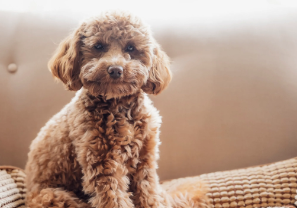
The Cavapoo is a cross between a Cavalier King Charles Spaniel and a Poodle. Cavapoos go by several names, including Cavadoodle, Cavapoodle, and Cavoodle. Outgoing, playful, and curious, these pups inherit some of the best traits from their parent breeds. Like many other hybrid dog breeds, the exact origin and timeline of the Cavapoo dog’s development are not well-documented, but they’ve quickly become a rising star in the designer dog world, especially within the “doodle dog” group.
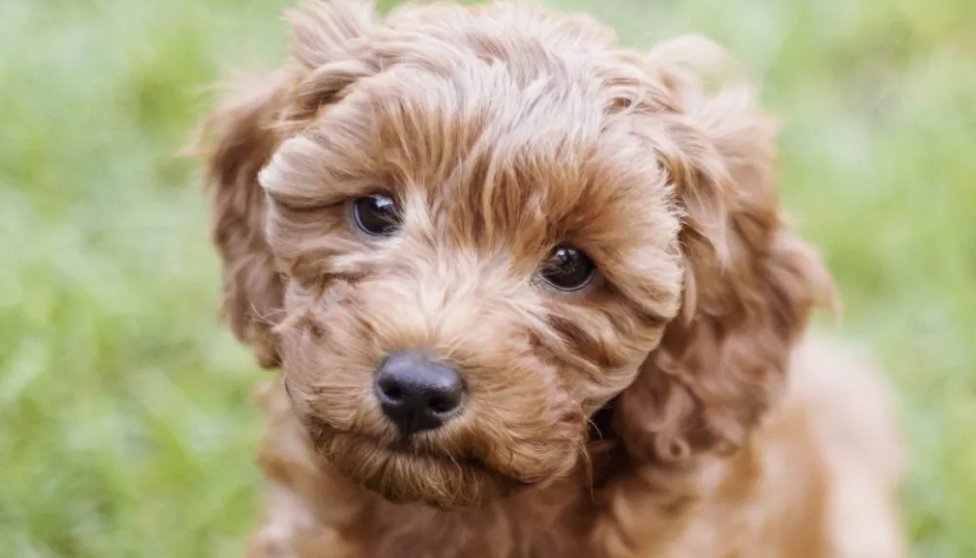
Because of their size, coloring, and coat texture, the Cavapoo gives the impression of looking like a teddy bear dog. Their personality matches their charming looks; the Cavapoo temperament is known for being sociable, playful, and loving. They make amazing family pets due to their outgoing nature and compatibility with children. While the breed is happy to be a solo pup in an individual’s household, they thrive in a “pack” setting. In addition to their affectionate temperaments and small size, they are also considered a hypoallergenic dog breed. This small, non-shedding breed would make a great option for those with dog allergies.
When considering a Cavpoo, it’s incredibly important to prioritize adopting from rescue organizations or shelters to provide a loving home to a dog in need. However, if you’re on the search for Cavapoo puppies and decide to purchase one, it’s crucial to choose a reputable breeder. Conduct thorough research to ensure that the breeder follows ethical practices and prioritizes the well-being of their dogs. Reputable Cavapoo breeders prioritize the health and temperament of their dogs, conduct necessary health screenings, and provide a nurturing environment for the puppies. This active approach ensures you bring home a healthy and happy pup while discouraging unethical breeding practices.
Contents [show]
Cavapoo Overview
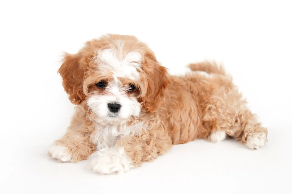
The Cavapoo is a cross between a Cavalier King Charles Spaniel and a Poodle, known for their affectionate temperament and teddy bear-like appearance. They are small to medium-sized dogs, typically weighing between 15 and 30 pounds. Cavapoos have a soft, wavy coat that can be either curly or straight. They come in a variety of colors, including black, white, brown, and cream.
Cavapoos are known for being friendly, intelligent, and easy to train. They are also relatively low-maintenance dogs, making them a good choice for first-time dog owners. Cavapoos are good with children and other pets, and they make great companion dogs.
Cavapoo Highlights

- Friendly and affectionate: Cavapoos are known for being loving and loyal dogs. They are always happy to see their owners and make great companions for people of all ages.
- Easy to train: Cavapoos are intelligent dogs that are relatively easy to train. They are eager to please their owners and can learn basic commands quickly.
- Good with children and other pets: Cavapoos are gentle and playful dogs that get along well with children and other pets. They are a good choice for families with young children.
- Low-maintenance: Cavapoos are relatively low-maintenance dogs. They require weekly brushing and occasional baths. They are not as high-maintenance as some other breeds, such as Poodles.
- Hypoallergenic: Cavapoos are not 100% hypoallergenic, but they are less likely to shed than some other breeds, making them a good choice for people with allergies.
Cavapoo Size
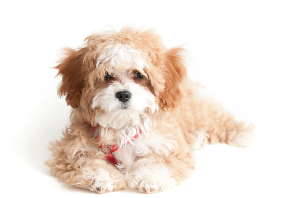
As the Cavapoo is a relatively new breed, there are few standards when it comes to size. That said, as a mix between Cavalier King Charles Spaniel and Poodle parents, you can expect Cavapoos to be small to medium, depending on the size of the Poodle parent.
Most weigh in at nine to 25 pounds and range in height from nine to 14 inches at the shoulder. That said, many can be smaller or larger.
Cavapoo Personality
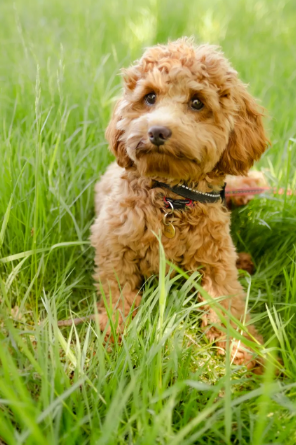
Cavapoos have boomed in popularity because they have such an amicable and winning personality. They’re a popular family dog, thanks to their outgoing, playful, and affectionate nature. That said, the Cavapoo is not a dog that tolerates being alone very much, and they could experience separation anxiety if not properly socialized and trained. The Cavapoo is an intelligent breed and lives for your validation and praise.
This makes Cavapoos fairly easy to train, as they are eager to please. Cavapoos can be athletic too, which makes them great when it comes to agility and obedience competitions. As they can be somewhat attached-at-the-hip, it is important to train your Cavapoo early so they know how to be alone.
Without proper training, your Cavapoo could turn to destructive behaviors, like chewing furniture and shoes or rooting through the garbage, when they are left alone. Cavapoos tend to get along with everyone and may even greet an intruder with a wag of their tail. With that in mind, if you are looking for a guard dog, a Cavapoo isn’t a good choice. Cavapoos tend to thrive most in homes where they get loads of attention, be it with a family or a senior citizen.
Cavapoo Health
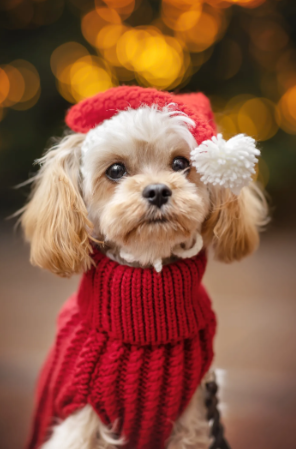
Cavapoos are generally healthy dogs, but they can be prone to some common health problems in both Cavalier King Charles Spaniels and Poodles. Here are some of the most common Cavapoo health issues:
- Mitral valve disease (MVD) is a heart condition that affects the mitral valve, which is responsible for regulating blood flow between the heart’s two lower chambers. MVD can cause a variety of symptoms, including coughing, difficulty breathing, and fainting.
- Progressive retinal atrophy (PRA) is a group of eye diseases that can lead to blindness. PRA is a genetic condition that is not curable, but there are treatments that can slow the progression of the disease.
- Hip dysplasia is a condition in which the hip joints do not fit together properly. This can cause pain and lameness. Hip dysplasia is often treated with surgery or medication.
- Luxating patella is a condition in which the kneecap slips out of place. This can cause pain and lameness. Luxating patella is often treated with surgery or physical therapy.
- Epilepsy is a neurological disorder that causes seizures. Epilepsy can be controlled with medication, but it is not curable.
- Syringomyelia (SM): A severe, chronic condition that affects the spinal cord. When fluid-filled cavities or cysts — known as syrinxes — form within the central canal of the spinal cord, they can expand and cause damage to the spinal cord’s tissue. This process can lead to a variety of symptoms, ranging from mild discomfort to severe pain and partial paralysis. The condition is most commonly seen in certain toy breeds but can affect any dog.
- Dental problems are common in all dogs, but they are especially common in Cavapoos. Cavapoos are prone to tartar buildup, which can lead to gum disease and tooth loss.
- Allergies are also common in Cavapoos. Allergies can cause a variety of symptoms, including skin problems, ear infections, and respiratory problems.
Cavapoo Care
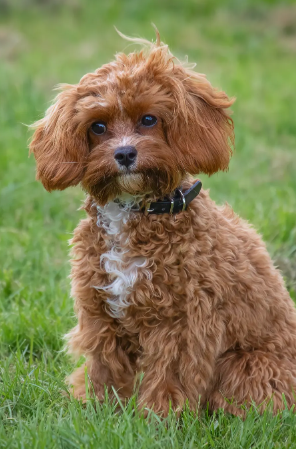
As with any dog, you should keep up with your Cavapoo’s regular veterinary checkups to detect any health concerns early. Your vet can help you develop a care routine that will keep your dog healthy.
Cavapoos are somewhat prone to weight gain, and they can have heart issues if they do not maintain a healthy weight. Make sure your dog gets at least one good half-hour- to hour-long walk per day with a few good, active play sessions and shorter walks mixed in. Check their ears for debris and pests daily, and clean them as recommended by your vet.
Trim your dog’s nails before they get too long–usually once or twice per month. They should not be clicking loudly against the floor. Your groomer can help with this. You should brush their teeth daily, as smaller breeds are prone to dental issues. Your veterinarian can instruct you on how to brush your dog’s teeth properly.
Cavapoo Feeding
An ideal Cavapoo diet should be formulated for a small- to medium-sized breed with high energy levels. They have a tendency to gain weight if they’re overfed, so you should stick to a regular feeding schedule and not leave food out during the day.
Limit their amount of treats, as well. As with all dogs, the Cavapoo’s dietary needs will change from puppyhood to adulthood and will continue to change into their senior years. You should ask your veterinarian for recommendations about your Cavapoo’s diet, as there is far too much variation among individual dogs–including weight, energy, and health–to make a specific recommendation.

